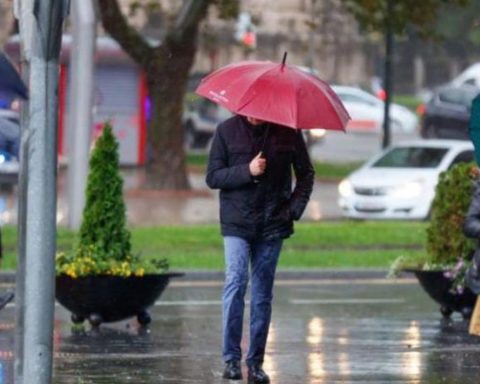The Plenary of the Constitutional Convention of Chile approved the law for the protection of glaciers with 113 votes in favor.
“The State guarantees the protection of glaciers and the glacial environment, including frozen soils and their ecosystem functions,” says article 11.
The conventional Constanza San Juan, vehemently celebrated the approval. “The protection of glaciers, their environments, frozen soils and ecosystem functions has just been approved. We are happy that vital elements such as water are protected from their sources! Another great reason to vote #approvedeexit this September 4th!
Another of the important articles refers that the ecological management and planning strategies in Chile should have as a priority the protection of “the upper parts of the basins, glaciers, natural recharge zones of aquifers and ecosystems”.

Likewise, “buffer zones for environmental protection areas” may be created. The differences with respect to the proposal were expressed with six against and 30 abstentions during the plenary session.
Socio-environmental activists from the Atacama Constituent Assembly (ACA), expressed that “this single norm is the best news for the new Chile.
With this plenary session, the constitutional draft was formally completed.
SEE HERE HOW THE OFFICIAL DRAFT OF THE CONVENTION WAS
The articles approved in the last plenary session
Article 5.- The State must promote and protect community management of drinking water and sanitation, especially in rural and extreme areas and territories, in accordance with the law.
Article 9.- The territorial sea and the beaches are inappropriate natural common goods.
Article 11.- The State guarantees the protection of glaciers and the glacial environment, including frozen ground and its ecosystem functions.
Article 12.- The Chilean Antarctic territory, including its maritime spaces, is a special territory and border area in which Chile exercises sovereignty and sovereign rights, respectively, with full respect for ratified and current treaties. The State must conserve, protect and care for Antarctica, through a policy based on knowledge and oriented towards scientific research, international collaboration and peace.
Article 15.- The land use and ecological planning plans will prioritize the protection of the upper parts of the basins, glaciers, natural recharge zones of aquifers and ecosystems. These may create buffer zones for environmental protection areas.
Article 18.- The State guarantees the right of peasants, peasants and native peoples to the free use and exchange of traditional seeds.
Article 21.- Every person has the right to a vital minimum of affordable and safe energy.
It is the duty of the State to guarantee equitable and non-discriminatory access to energy that allows people to satisfy their needs, ensuring the continuity of energy services.
The State must regulate and promote a distributed, decentralized and diversified energy matrix, based on renewable energies with low environmental impact.
Energy infrastructure is in the public interest.
The State will promote and protect cooperative energy companies and self-consumption.
Article 24.- Glaciers, protected areas, those established by law for reasons of hydrographic protection, and others declared by law, will be excluded from all mining activities.
New article.- The provisions of the first paragraph of article 22 shall not apply to surface clays.
Article 25.- The State must regulate the impacts and synergistic effects generated in the different stages of the mining activity, including its productive chain, closure or stoppage, in the manner established by law. It will be the obligation of whoever carries out the mining activity to allocate resources to repair the damage caused, the environmental liabilities and mitigate their harmful effects in the territories in which it is carried out, in accordance with the law. The law will specify the way in which this obligation will be applied to small-scale mining and quarrying.
Article 28 bis. The State will adopt the necessary measures to protect small-scale mining and quarrying, promote them and facilitate access to and use of tools, technologies and resources for the traditional and sustainable exercise of the activity.
Article 30.- It is the duty of the State to contribute and cooperate internationally in space research for peaceful and scientific purposes.
The State will promote measures to conserve the atmosphere and the night sky, according to territorial needs.
new article. The State will have the duty to establish a National Port Policy, which will be organized around the principles of efficiency in the use of the coastline; environmental responsibility, placing special emphasis on caring for nature and natural common goods; the public participation of the resources generated by the activity; the link with territories and communities where the port facilities are located; establishment of a professional port career, recognizing it as a high-risk job; and the collaboration between facilities and port infrastructure to ensure the timely supply of the communities.
Article 51.- It is the duty of the State to guarantee environmental education that strengthens the preservation, conservation and care required with respect to the environment and Nature, and that allows for the formation of ecological awareness.



















